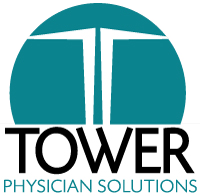Nephrology Today Blog

Now is the Time to Prepare Your Practice for MACRA
Sandeep Bajaj, Meaningful Use Coordinator with Tower Physicians Solutions recently discussed in an interview what nephrology doctors need to know about MACRA. CMS released its long-awaited for new value-based payment programs under the Medicare Access and CHIP Reauthorization Act (MACRA). What you may not know are some of the realities of the rule, how they will affect your organizations and practices, and what you need to do in order to survive (and hopefully prosper) as this legislation dramatically alters our healthcare landscape.
Sandeep works full time on government healthcare programs like Meaningful Use, guiding Tower clients towards a solution that best fits their practice needs. Her expertise may relieve some of the pressure of learning about new changes affecting private medical practices. We are going to be talking to Sandeep about medical practice solutions and, more specifically, MACRA as it relates to nephrology private practices.
What do nephrologists in private practice need to know about MACRA?
1. Starting in 2019, Centers for Medicare & Medicaid Services, will change how they pay physicians in a profound way. The details are complicated and confusing, therefore we are going to focus more on immediate concerns.
2. This rule only applies to practices and Medicare, not hospitals.
3. 2017 performance data will determine payments in 2019
4. MACRA has two paths – MIPS (Merit based incentive payment system) and APM (Alternative Payment Model)
5. Most Physicians will start with MIPS – data will determine what type of penalty or incentive they receive.
6. MIPS will adjust physician pay based on their total composite performance score, which will be determined from four categories: Quality care, cost-of-care/resource use, clinical practice improvement activities and the newly-branded “advancing care information” program, which is the new name for a modified Meaningful Use program.
How can a practice prepare for MACRA?
1. Outline a strategy for tackling MACRA by Q4 2016 by focusing on measures that your practice performs well on. Take a look at your quality measures and identify high-performing areas.
2. Educate yourself and your partners to encourage discussion about the new regulation.
3. If you reported on PQRS last year, review your CMS Quality Resource and Use Report (QRUR) to compare your Quality Performance with other Providers.
4. Ensure that your EMR technology is certified and determine which quality measures your technology can report on – most EMRs cannot report on all 300 measures.
What are some of the challenges a small nephrology practice might face in preparation for MACRA?
1. A couple of things,
2. Generally larger organizations are considered better equipped to manage and coordinate care, improve quality and lower costs than are small groups of doctors. This means incentives can be higher for those in the group vs. small practices.
3. The way MACRA is set up currently – small practices will be at a higher risk of incurring penalties.
How can Tower Physician Solutions help private practices?
A. Tower can provide you with the resources needed to determine the best quality measures for you and your practice. We will determine which measures you are performing well in and create a strategy for how to meet other measures. Tower experts will help you become fully prepared for MACRA implementation. Will your practice be ready to implement these changes? There is a lot of information here to sort through, Tower Physicians Solutions is ready to help you develop a plan of action to be ready for these big changes. Contact us and let us get started on a plan so you can stay focused on your patients! Contact Tower at 630-243-5731 for more information. Listen to the interview here.
Tags: billing and collecting, CMS, MACRA, meaningful use, medical practice management, medicare, MIPS, payments, Practice Management, shared savings programs
For the past year, CMS was especially lenient, paying for codes in the right “family of codes” without requiring more specificity. From now on, claims that don’t include cause codes to go along with a CKD or ESRD diagnosis will not be paid. If your physicians, coding specialists or billing service are not aware of CMS requirement for specificity, you could see a severe increase in denials. To save the time it takes to resubmit claims and to ensure your payments don’t plummet, reach out to Tower Physician Solutions. Tower’s revenue cycle management experts will work with you to ensure you get paid for your services.
E-mail info@towerps.com or call 630-243-5731.
